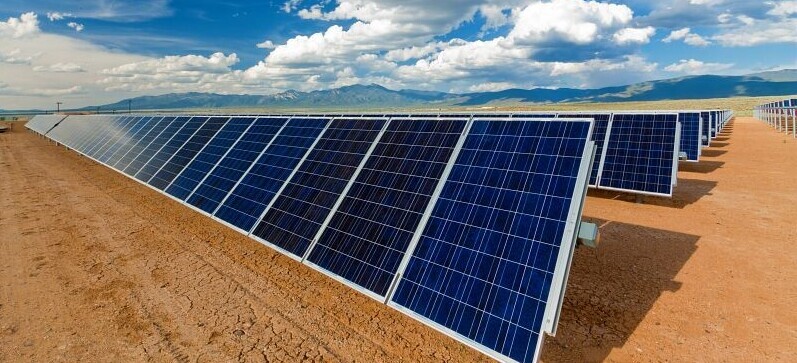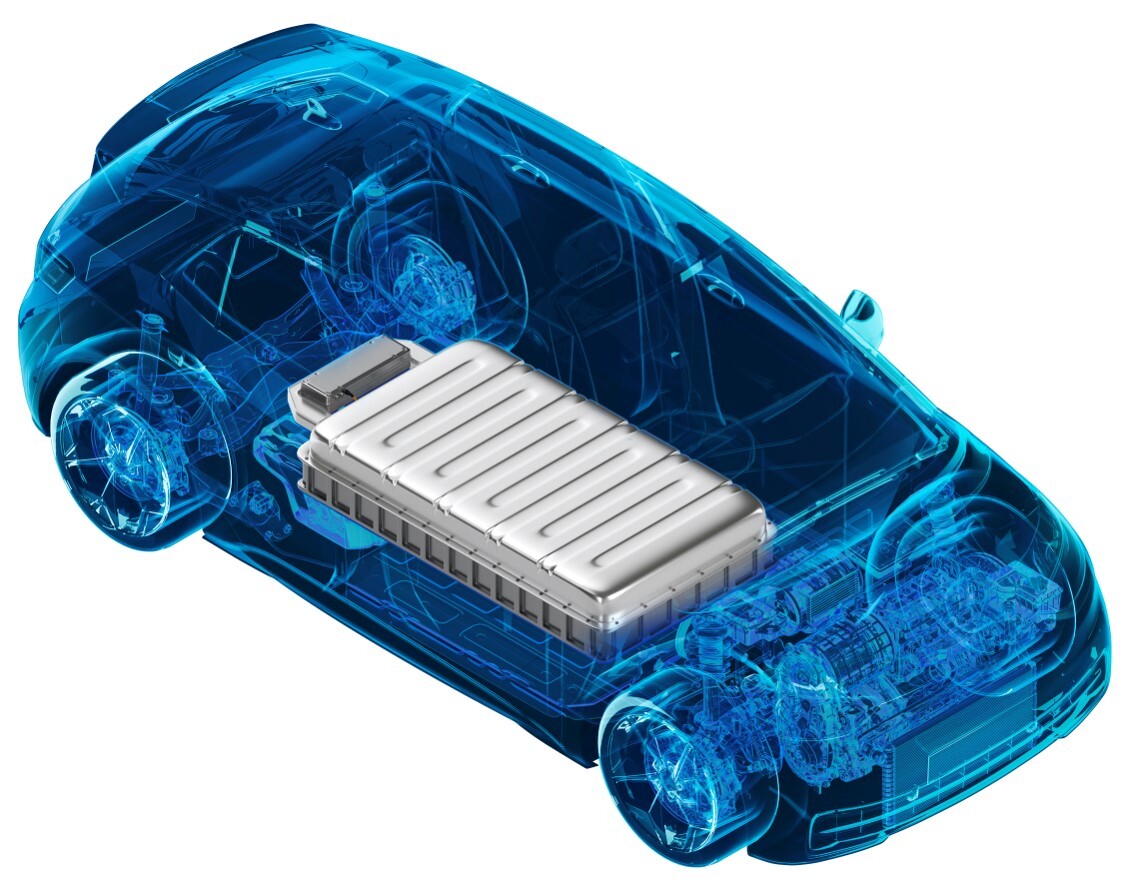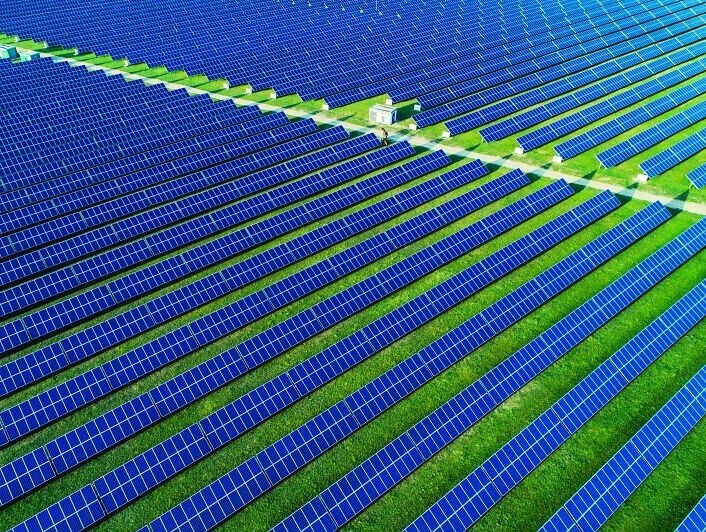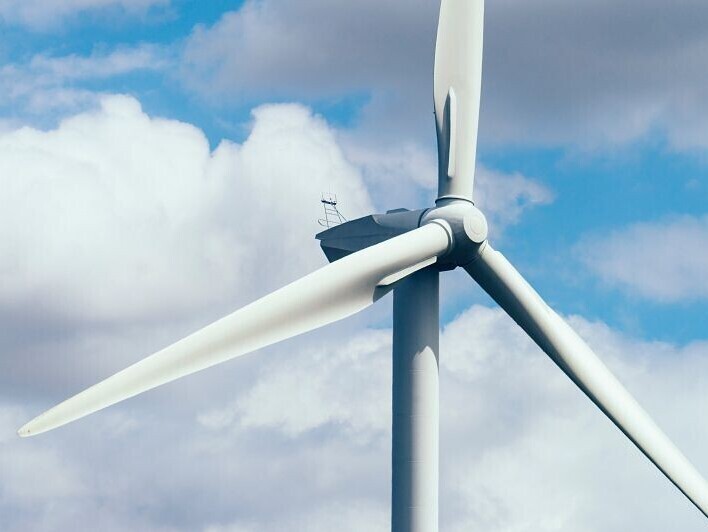Renewable energy and energy storage
Improving the competitiveness of solar energy
Used in the manufacturing of solar panels, our materials contribute to increasing their performance, while also reducing their cost.
PVDF Kynar® Film fluorinated polymers, extruded as ultra-fine and resistant multilayer films, protect the backside of the panels against humidity and solar aging. As a result, the lifespan of panels is extended beyond 20 years.
To improve its EVA offering, the Arkema Group developed Luperox® Solar, a grade of organic peroxide, which speeds up EVA crosslinking used for the encapsulation of cells, thereby optimizing the production rate of panels.
Researchers at Arkema developed Apolhya® Solar, a nanostructured thermoplastic polymer, designed for the encapsulation of new generation flexible photovoltaic modules, also known as “thin layers”. Apolhya® Solar combines thermo-mechanical, adhesive and creep resistant properties with perfect transparency. As no crosslinking is required for the implementation of this product, the production time of the panels is reduced, and end of life recycling is easier.
Facilitate the implementation of concentrated solar power plants
The use of a heat transfer fluid in the liquid state over the entire operating temperature range of a concentrating solar power plant is an undeniable advantage.
Also essential criterion: the service life of the fluid which undergoes different cycles between the solar field and the conversion of thermal energy (directly or through a large capacity heat storage). This ensures continuity of heat supply, even outside of sunny hours.

Committing to the expansion of wind power
To avoid exposing their personnel to styrene, makers of wind turbine blades are turning to acrylic coatings from Sartomer, an Arkema subsidiary. Applied as a surface coating, photocure acrylic coatings harden instantly under ultraviolet light.
This new protective technology is greener than green: it is solvent-free and emits zero volatile organic compounds (VOC).
Durable and recyclable wind turbine blades!
With its new Elium® thermoplastic resin, Arkema is increasingly active in the wind power market. This ultra innovative product features countless properties. In particular it allows energy savings during the manufacture of the thermoplastic composite blades, compared with blades made of polyester composite (a thermoset resin). Bonding takes place at ambient temperature: molds no longer need heating!
Furthermore, thanks to a depolymerization process developed by Arkema’s R&D, composite parts that contain the Elium® resin are recyclable. This is a big first and a real plus for wind turbine blade manufacturers, who are mindful of the future of their installations as well as the ussue of recycling.
Optimizing the biodiesel and renewable diesel production
Biofuels, produced directly or indirectly from biomass including plant materials or animal waste, are one key alternative option for the substitution of fossil fuels while reducing the greenhouse gas emissions. Governments across the world have put in place supporting policies by approving legislative instruments or implementing tax exemptions, subsidies or other forms of financial incentives that foster the biofuel industry.
The biodiesel is now commonly used all over the world. It is mainly produced, by transforming the vegetable or waste oils and animals fats, through two processes:
- The "transesterification” giving Fatty Acid Methyl Ester (FAME) biodiesel.
- The "hydro-processing” giving Hydrogenated Vegetable Oils (HVOs), called also “Renewable diesel.”
Whatever the process, the entire biodiesel sector is facing with multiple and complex challenges: meeting the biodiesel standard, improving yields, ensuring installations protection and operators safety in a context of cost reduction and tougher environmental standards.
Advanced acid catalyst for high quality biodiesel (manufacture)
Arkema is proposing its support thank a strong and recognized expertise and by providing its innovating thiochemal solutions to allow the biodiesel manufacturers to produce, in a safe and cost-effective manner, the highest quality of FAME biodiesel or renewable diesel. Arkema’s MSA LC (Low Corrosion) is a strong acid that could be used as a acidification or neutralization agent or as (trans)esterification catalyst that improves yield for biodiesel producers, allow the use of using advantaged feeds, with significantly reduced corrosivity toward stainless steel materials.
Catalyst injection services
Arkema manufactures the most widely used sulfiding agent, the Dimethyl Disulfide (DMDS), at a two world-scale production sites and ensure its seamless and safe supply throughout the world. Thank its 40 years of experience in the oil refining and petrochemical industries, Arkema can also optimize on-site the catalyst sulfiding though a wide range of Carelflex® injection services.
Energy storage
The development of renewable energies, which are by nature intermittent (wind, solar), combined with the evolution of nomadic technologies (electric cars, laptops, cell phones, tablets, etc.), requires increasingly efficient rechargeable batteries. To address this challenge, Arkema offers a number of materials that improve energy storage, battery power and battery operating life.
Lithium-ion batteries
The operation of lithium-ion batteries involves the exchange of lithium ions between a positive electrode (cathode) and a negative electrode (anode) during charge and discharge cycles. Cathodes are made up of bonded alloy particles capable of attracting lithium ions onto aluminum foil; anodes consist of graphite particles glued onto copper foil. This bonding, or binder, function of the active particles is key to the efficient performance of batteries.
Electrode binders and separator coatings are critical to the performance and safety of lithium-ion batteries.
For many years, Arkema has been a pioneer in lithium ion battery innovation. The Kynar® HSV series for electrode binders and Kynar® LBG series for separator coatings have become global reference products for extreme durability in batteries.
Another element that helps boost the efficiency of batteries involves the electrolyte, the medium in which lithium ions migrate from cathode to anode and vice versa during charge and discharge cycles.
Arkema has developed electrolyte formulations based on two new ultra-pure lithium salts Foranext LiFSI and LiTDI that help significantly increase the power performance, stability, and lifetime of batteries.
Discover ForaNext®LiFSI et LiTDI
Graphistrength® carbon nanotubes can also be used to manufacture cathodes. Carbon nanotubes facilitate the flow of energy from cathode to anode, thereby allowing the batteries to recharge faster.
Materials for batteries
We present full portfolio of energy storage solutions for Lithium ion batteries. We provide high performance solutions for battery cell, module, battery pack and assembly.
Our specific offering for other industries:
- Agriculture & food industry
- Chemical & plastic industry
- Cooling & refrigeration
- Health, hygiene & beauty
- Mining & metallurgy
- Packaging
- Pulp & paper
- Water management
- Automotive, transportation & aerospace
- Coatings & inks
- Building & construction
- Renewable energy & energy storage
- Adhesives & sealants
- Electrical & electronics
- Oil & gas
- Composites
- Sport & leisure
- 3D printing





